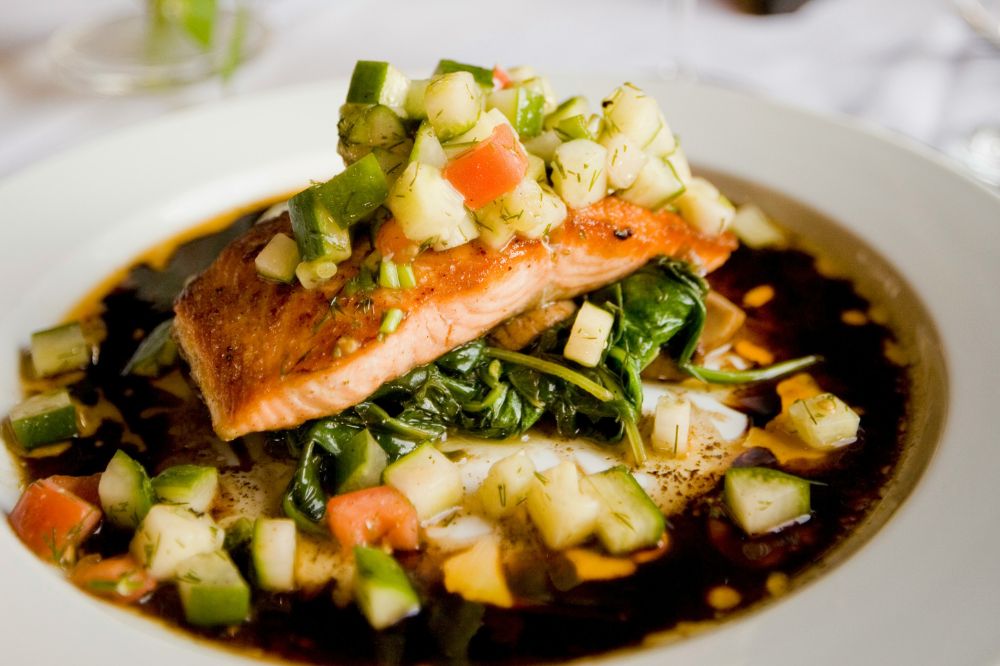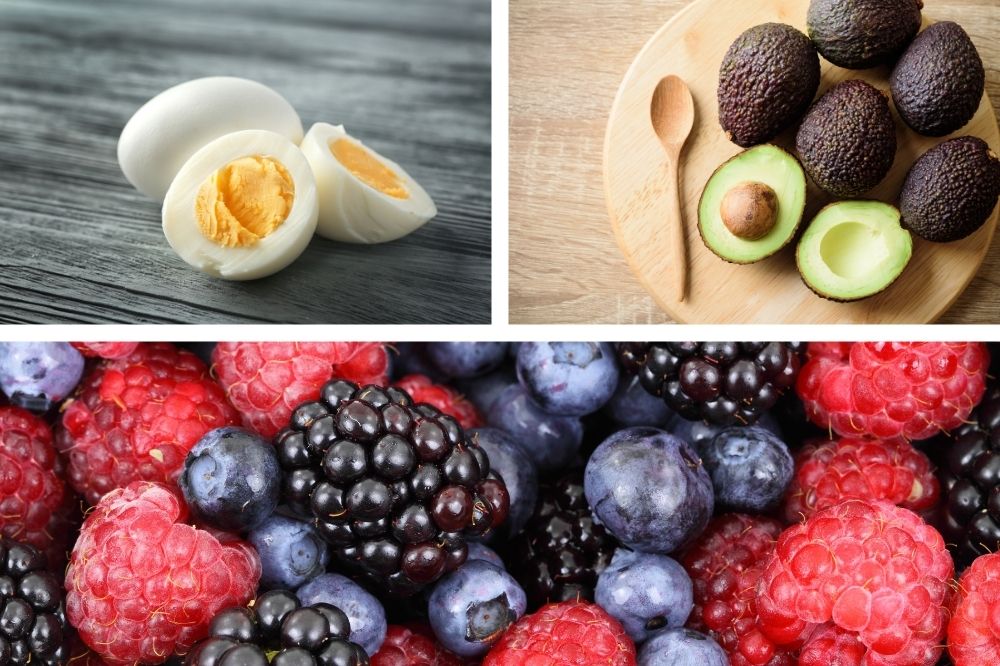What Is “Food Noise”?
The term food noise has been popping up everywhere lately, so let’s break it down.
“Food noise” describes the constant, intrusive thoughts about food, things like:
- What will I eat next?
- Should I have that snack?
- Did I eat too much?
- I can’t stop thinking about that dessert.
This term has become especially popular in conversations about GLP-1 receptor agonist medications (like semaglutide/Wegovy or tirzepatide/Mounjaro). Many people taking these drugs report a dramatic drop in this mental chatter, making it easier to eat based on physical hunger rather than impulse.
But here’s the thing, GLP-1 medications aren’t the only way to quiet food noise. Let’s talk about why this happens and what you can do about it naturally.

Why We Have Food Noise
Cravings are not a flaw; they’re part of our survival system. Your body is designed to signal when it needs energy, nutrients, or hydration.
If you never thought about food or never felt hunger, that would be a red flag that something is seriously wrong. That said, certain habits can turn up the volume on food noise: Let’s break down the process internally,
- Restricting food (physically or mentally) tells your body it’s in “scarcity mode,” triggering fight-or-flight.
- When your brain thinks food is scarce, it amplifies cravings to make sure you eat, and store calories for later.
- The more we forbid or moralize foods, the louder those thoughts become.
On the flip side, when your body knows food is always available, it doesn’t have to send constant “eat now” signals, because the food is always available and the body knows that, so it doesn’t have to stress out about it.
How to Quiet Food Noise Without Medication
1. Reframe how you think about food
If you associate food noise with guilt, loss of control, or past dieting rules, shift your mindset:
- Think functionally: I need energy, what would feel good right now?
- Remind yourself: food is not scarce, and nothing is “off limits.”
- When you trust yourself around food, those thoughts become background noise instead of pressure.
2. Make food available, but not in-your-face
Train your brain to know it can have the cookie or ice cream anytime. Keep them stocked, but store them out of sight so you’re eating from true desire, not just visual cues.
If you’re craving something sweet, pause and ask:
- Did I eat enough carbs today? Or enough calories today?
- Am I restricting certain foods or food groups?
Give yourself permission to have a bite or a portion when you truly want it. Over time, this breaks the urgency and the mental chatter! Make sure to slow down. Savor the bite. and limit any distractions.
3. Track your progress
Seeing your wins on paper makes the change feel real. Try:
- Keeping a tally of how many times food thoughts pop up each day.
- Stocking a “trigger” food in the house and checking in weekly: Did I feel out of control around it? (Yes/No)
- Noting if you ate more than you wanted because you thought, I might not get this later.
Your Goal:
- Before: Feeling the need to eat a lot of something because “I won’t allow it later.”
- After: Knowing the food is always available, so there’s no urgency to overeat.

How to Decrease Food Noise with Food:
What you eat can either turn down or turn up food noise. Certain foods support the same satiety pathways that GLP-1 medications do, while others help your gut produce butyrate, a short-chain fatty acid linked to better appetite regulation, reduced inflammation, and more balanced blood sugar.
1. Boost butyrate naturally
Butyrate is produced when your gut bacteria ferment fiber, especially resistant starch. It plays a big role in signaling fullness and keeping hunger hormones in check.
- Eat more prebiotic fibers: onions, garlic, leeks, asparagus, bananas (slightly green), Jerusalem artichokes.
- Add resistant starch sources: cooked-and-cooled potatoes or rice, oats, lentils, and beans.
- Go for variety: aim for at least 20–30 different plant foods a week to diversify gut bacteria and improve butyrate production.
2. Support natural GLP-1 release
You can help your body naturally stimulate GLP-1 by eating:
- Protein-rich foods (especially at breakfast): eggs, Greek yogurt, cottage cheese, chicken, fish, tofu.
- Healthy fats: avocado, nuts, seeds, olive oil—these slow digestion and help sustain fullness.
- Polyphenol-rich foods: berries, dark chocolate (85%+), green tea, linked to GLP-1 stimulation and improved insulin sensitivity.
3. Work with your hormones, not against them
If you menstruate, your food needs change across your cycle. In the luteal phase (roughly 10–14 days before your period), progesterone rises, your metabolism increases, and your body naturally needs more carbs and calories.
- Sugar cravings in this phase often mean your body truly needs more fuel—especially complex carbs like sweet potatoes, oats, brown rice, and fruit.
- Undereating during this time can spike food noise and make cravings feel uncontrollable.
- Honor the phase by eating balanced meals with extra carbs, magnesium-rich foods (like dark chocolate, pumpkin seeds, spinach), and adequate protein.
4. Balance your blood sugar
Blood sugar spikes and crashes are a major food noise amplifier.
- Start meals with protein + fiber to slow down glucose absorption.
- Avoid going long stretches without eating, especially if you tend to get hangry or anxious.
- Pair sweets with protein or fat (like having nuts with chocolate) to keep energy stable.
5. Hydrate before you assume it’s hunger
Mild dehydration can sometimes feel like food noise. A glass of water or an electrolyte drink can often quiet cravings, especially for salty snacks like chips, if your body is thirsty.

Ready to quiet your food noise for good?
This blog is just the beginning. While understanding why food noise happens is powerful, actually retraining your body and mind takes consistent action, accountability, and the right strategies for you.
That’s where coaching comes in. I’ll help you:
- Create a personalized plan that works with your lifestyle and preferences
- Support your body’s natural hunger and fullness cues
- Identify hidden triggers that are keeping food noise loud
- Build confidence around food—without restriction or guilt
Let’s turn down the mental chatter and help you eat with ease.
Book a free discovery call today to start your journey toward food peace.